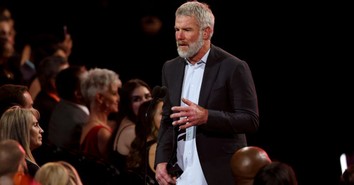Why 41 Million Christians Aren’t Planning to Vote This Election

Millions of Christians are reportedly not planning to vote in the 2024 presidential election this November, according to a new study. The study, conducted by the Cultural Research Center at Arizona Christian University, found that just half of interviewees (51 percent) who identified as "people of faith," including those in Christianity, Judaism, Mormonism, or Islam, said that they are likely to vote in next month's election between former President Donald Trump and Vice President Kamala Harris.
However, approximately 104 million people under the "people of faith" umbrella do not plan to vote in this election, including 41 million born-again Christians and 32 million who regularly attend church.
"I see two huge takeaways from this blockbuster report," Len Munsil, President of Arizona Christian University and a former Republican nominee for Arizona governor, said in a news release shared with Just The News. "First, that Christians could be the deciding factor in a bunch of federal and state races – and are choosing not to be. And second, that they are longing for their local church to instruct them on how to think biblically about policy and politics.
"They don't want to be told how to vote, but they do want to know why they should vote and how to view political issues from a biblical framework," he added.
The study also found several reasons why Christians are not planning to vote in November, including a lack of interest in politics (68 percent), a dislike in both major party candidates (57 percent), and a belief that their vote will not make a difference (52 percent). A smaller percentage (48 percent) believe that the election results will be manipulated.
"The 32 million Christians who regularly attend church services but are not likely to vote represent a far larger margin than the combined number of votes that decided the 2020 election in key battleground states," the study's lead researcher, Dr. George Barna, said. "If church leaders, family members, and close friends will use their influence to get reticent voters from their churches to cast a ballot on November 5, the election outcome will be meaningfully affected."
A combined total of 3,000 respondents were polled in the study, which was conducted in two phases in August and September.
Photo Credit: ©RNS/AP Photo/Charlie Riedel

Originally published October 09, 2024.







